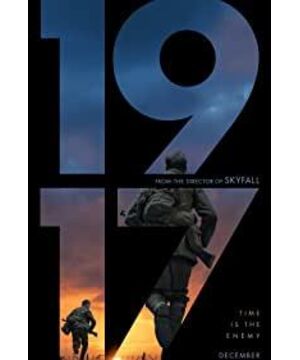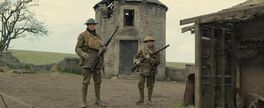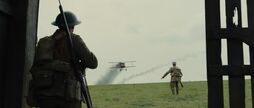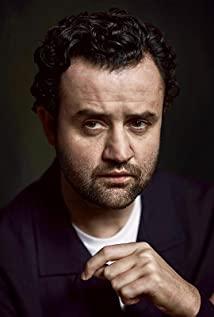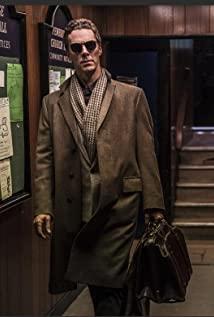I'm just a poor wayfaring stranger Traveling through this world below There is no sickness, no toil, nor danger In that bright land to which I go
I'm going there to see my Father And all my loved ones who've gone on I'm just going over Jordan I'm just going over home
Johnny Cash - Wayfaring Stranger
In 2019, it should be considered the best of the year. The whole film looks like a gift mixed with pain and tenderness, and you can't take your eyes off it. Couldn't resist writing a superficial long review.
Let me tell you a personal opinion (already mentioned in some comments), the protagonist Schofield died when he was shot for the first time, that is, when the camera switched obviously for the first time (1h6m), and then it was his imagination/screenwriter's imagination before his death. weaving.
The whole film is of course romantic, but the first half is generally realistic, the corpse and the crater are within the focal length of the lens, and the progression of the characters can also be explained by luck. In the second half, it directly entered the surreal, the whole rhythm was completely different, several times passing through the level was like divine help, and several encounters were like a fantasy. Schofield went from a blood-stained and scarred state to a clean, finally dust-free, wrinkle-free state. On the way, he threw away foreign objects one by one, and in the end, only himself, and the letters and relics that symbolized the mission were left. At the same time, the field of view is getting wider and the tone is getting brighter, for example, the trenches in the front and back of the film are completely different.
This possibility of the death of the protagonist is consistent with the theme of the film. Rather than telling a story about a personal heroic deed, I prefer to describe it as a martyrdom of a saint, or the burst of divinity/humanity that mortals face in the face of death in war. Although Schofield initially disapproved of the impulsive plan to go immediately, the moment he climbed out of the trenches and said "Age before beauty" to his younger companions, the personal tone was set. This task is nearly impossible for mortals without the might of Hercules, so it was martyrdom from the start. As depicted in "Slaughterhouse No. 5" and "Catch 22", war is beyond the understanding of normal human beings. 1600 lives are not comparable to 1 life in front of them. A precious medal is exchanged for a bottle of wine. It's normal, so the setting of such an important task hanging over two people (later turned into one) is not abrupt.
The death of his companion further forces Schofield to resist this enormous tension with a belief that borders on unreasonable, firm and hard as he says "Yes, I will." from the rocking truck. It was not until later that he saw the French woman who was taking care of the baby in the city (as mentioned above, it may have been an illusion at this time), singing lullabies in different languages under the warm and dim light, as if breaking the language barrier and building the Tower of Babel, at that moment. He softened like a saint, and the woman with the baby was like the Virgin. To complete the delivery of a military order and save 1,600 lives requires firm strength; while telling the elder brother about the death of the younger brother and telling the mother about the death of the son requires gentle but equally powerful strength.
Finally, when watching this movie, it is hard not to think of Dunkirk. The editing of the two is almost at two extremes, but I think the sense of rhythm has something in common. An oxygen-deficient breath. Long shots can only be considered dazzling, the key is that the angle of every second is not slack, and the breath is endless. The last 20 minutes also reminded me of Spielberg's War Horse, but the latter was too formal.
View more about 1917 reviews


